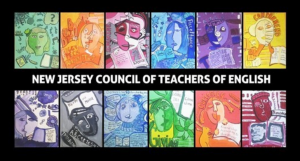by Joseph S. Pizzo
At the initial NCTE SCOA meeting, the theme was “Joy.” It was defined as “the feeling that acknowledges satisfaction in oneself and in others as well.” During this pandemic, the main direction was identified as a critical component of both the personalities and the lives of all educators and families.
We wrote about the topic of joy. We discussed our writings in both breakout rooms and a full meeting. Here is my note.
“Joy is reflected in the woman raising the child. We uplift as we mentor, but we gain from those we mentor as well. We experience confluencia as joy flows inward, but the experience is even greater when the confluencia follows its natural course and flows outwardly to share that which it has gained previously.”
At the second SCOA meeting held later in the day, we examined an article entitled, “How Gratitude Changes You and Your Brain.” Breakout rooms were again used so the article could be discussed in assigned sections. The notes from my group are as follows:
- Positive emotion words, negative emotion words, and “we” words (first-person plural words) that participants used in their writing have an impact.
- The gratitude writing group used a higher percentage of positive emotion words and “we” words.
- The lack of negative emotion words—not the abundance of positive—explained the mental health gap between the gratitude writing group and the other writing group.
- Gratitude letter writing produces better mental health by shifting one’s attention away from toxic emotions.
Having a positive outlook and avoiding toxic thoughts and situations was found to lessen the use of toxic words in one’s daily lexicon. According to the authors Joshua Brown and Joel Wong, “many studies over the past decade have found that people who consciously count their blessings tend to be happier and less depressed.” The experimental group in the study wrote letters of gratitude while the control group did not.
The research study that was conducted by Brown and Wong involved “nearly 300 adults, mostly college students who were seeking mental health counseling at a university. We recruited these participants just before they began their first session of counseling, and, on average, they reported clinically low levels of mental health at the time. The majority of people seeking counseling services at this university in general struggled with issues related to depression and anxiety.”
The main findings made in the article are as follows:
- Gratitude unshackles us from toxic emotions.
- Gratitude helps (the individual) even if you don’t share it (in some form with others).
- Gratitude’s benefits… (emerge slowly over) time.
- Gratitude has lasting effects on the brain. (“…when people who are generally more grateful gave more money to a cause, they showed greater neural sensitivity in the medial prefrontal cortex, a brain area associated with learning and decision making. This suggests that people who are more grateful are also more attentive to how they express gratitude.”)
The authors of the article conclude that “practicing gratitude may help train the brain to be more sensitive to the experience of gratitude down the line, and this could contribute to improved mental health over time.”
I shall conclude my report by sharing the note of gratitude that I have written to my colleagues at NJCTE.
Dear Friends,
I am grateful to all of you, my colleagues at NJCTE. We consistently have a range of different tasks to address and complete. It is important to know, however, that we gather our talents and combine our efforts to help any of us who may be in need. We acknowledge the commitments made to our organization and our membership by readily offering to help any member who may be in need. The unselfish nature of our organization makes me proud to be a member.
Thank you, NJCTE for your kindness of heart, your generosity of spirit, and your willingness to give of yourself to help others in need.
Sincerely,
Joe Pizzo
